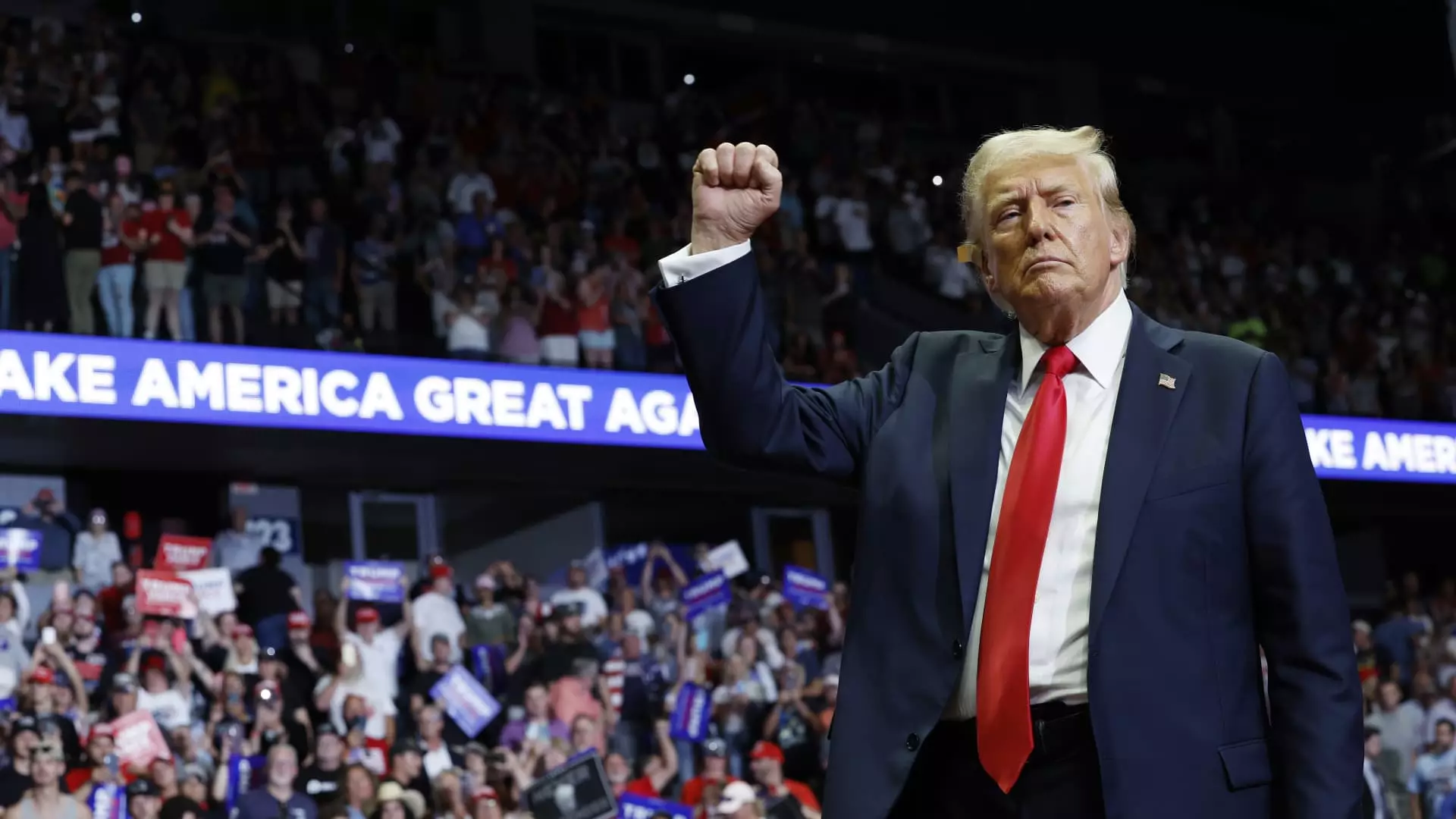Former President Donald Trump made headlines by headlining the biggest bitcoin conference of the year in Nashville. This move comes as the race to capture the votes and campaign cash of America’s frontline fintech adopters is taking center stage in the 2024 presidential contest. Trump, who was previously critical of bitcoin and other cryptocurrencies during his time in the White House, has now made a significant shift in his stance. He has accepted donations in virtual tokens, pledged to end President Joe Biden’s “war on crypto,” and advocated for all future bitcoin to be made in America.
While Trump’s appearance at the bitcoin conference garnered attention, Vice President Kamala Harris was also briefly in talks to attend the event. Although she ultimately declined, it is indicative of the growing interest in the cryptocurrency space among political figures. Billionaire businessman Mark Cuban revealed that the Harris campaign had reached out with questions about crypto. This suggests that Harris is exploring the potential implications of cryptocurrency in terms of her policies, especially if she were to be elected president.
Venture capitalists have emerged as key players in the intersection of cryptocurrency and politics. Prominent figures such as Tyler and Cameron Winklevoss, Marc Andreessen, Ben Horowitz, and David Sacks have pledged significant donations to political action committees supporting various campaigns. These individuals, who are pro-crypto, are leveraging their influence and resources to shape the narrative around cryptocurrency regulation and adoption.
The tech elite, including chief legal officers of major companies like Coinbase and Ripple, are actively involved in supporting pro-crypto candidates through super PACs like Fairshake. On the other hand, Vice President Kamala Harris is seeking to secure support from big tech’s undecided donors. As Harris has a longstanding relationship with the tech community, having fundraised from companies like Amazon, Alphabet, Microsoft, and Apple, her candidacy presents an opportunity to bridge the gap between politics and the cryptocurrency industry.
The evolving dynamics between cryptocurrency and politics reflect a broader trend of how digital assets are increasingly influencing the political landscape. As traditional financial institutions and policymakers grapple with the disruptive potential of cryptocurrency, there is a growing realization that the regulatory environment needs to adapt to accommodate these innovations. The influx of interest and cash from tech talent, venture capitalists, and political figures underscores the complex interplay between technology, finance, and governance in the digital age.
Overall, the shifting landscape of cryptocurrency and politics underscores the need for a nuanced understanding of how these two domains intersect and influence each other. As key stakeholders engage in shaping the regulatory framework and adoption strategies for cryptocurrencies, the future trajectory of this evolving relationship will have far-reaching implications for the financial system, governance structures, and technological innovation.


Leave a Reply